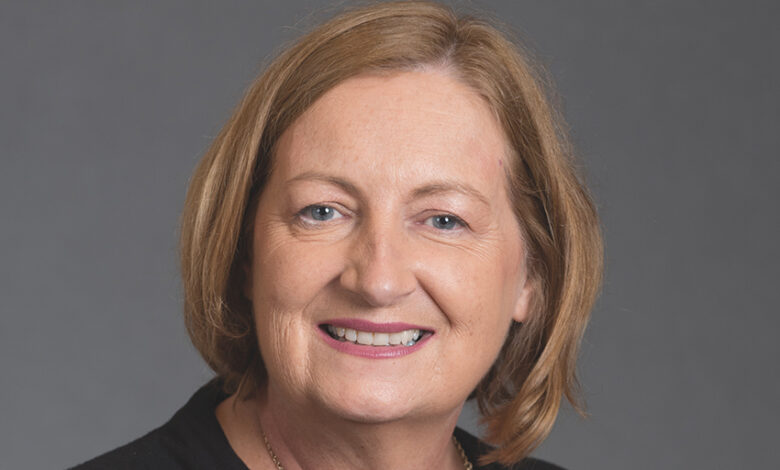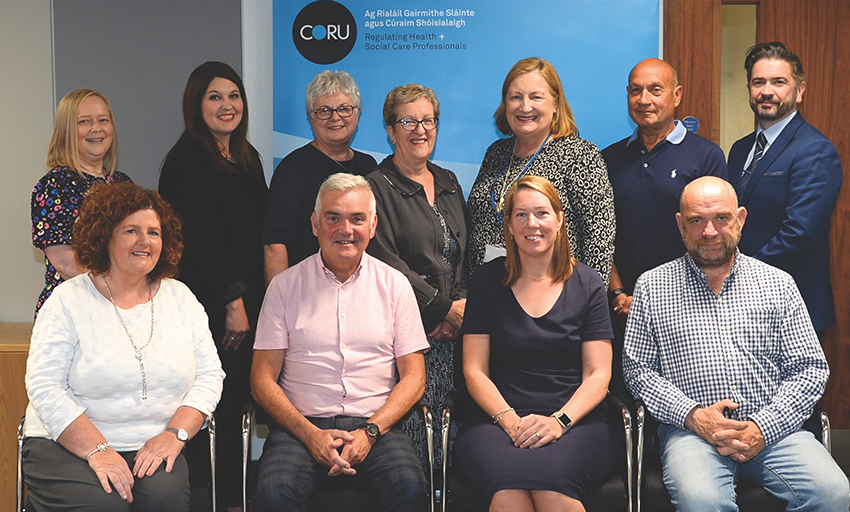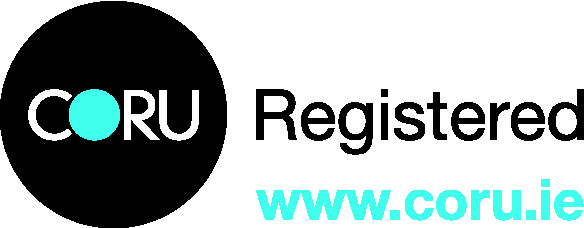Towards a more sustainable regulatory model

As CORU CEO and Registrar, Ginny Hanrahan approaches the end of her tenure, she has been reflecting on the achievements on the team she leads.
Every day across Ireland, tens of thousands of people benefit from the care and compassion of health and social care professionals. From occupational therapists to optometrists and from social workers to speech and language therapists, there is not an Irish family whose life is not touched by some of these professionals. Other professions regulated by CORU include physiotherapists/physical therapists, dietitians, dispensing opticians, radiographers, radiation therapists, medical scientists, and podiatrists.
For the past 15 years, Ginny Hanrahan has been tasked with ensuring the quality and consistency of that care. As the inaugural CEO and registrar of CORU, Ireland’s multi-profession health and social care regulator, Hanrahan has overseen the introduction of statutory regulations for a dozen professions, while plans are well underway for adding a further five to that list.
Public protection
Public protection is a phrase Hanrahan repeats often. “This is the raison d’être,” she explains. “We currently regulate the work of over 24,500 health and social care professionals. Each one of our regulated professionals could have dozens of patients or service users a week. Protecting those people is our mission and this guides everything we do.”
CORU was established in 2005, under the Health and Social Care Professionals Act by Mary Harney who was then Minister for Health to regulate a range health and social care professions, many for the first time. The journey for Hanrahan started in May 2008 when, having been Head of Clinical Services in Dublin’s Beaumont Hospital for over seven years, she took on the role of CORU CEO/Registrar.
“The concept of a multi-profession regulator seemed completely alien to many people. But all I could see was a huge opportunity to improve the experience of patients and services users nationwide by setting statutory standards for the professions to be regulated. I am glad to say my optimism paid off and the results have been quite clear.”
The first major milestone for the fledgling regulator was the opening of the social worker register in 2011. “The vast majority of Ireland’s social workers enhance the lives of those who need their services, but by opening this register we established a legal set of standards, including the first statutory code of professional conduct and ethics for social workers, as a guide to the professionals. In December 2014, we opened the Fitness to Practise function of our regulation, to provide a place for people to turn to if things go wrong.”
Now having repeated the opening of registers 11 times you could forgive Hanrahan for taking the moment for granted, not so she says. “It is the culmination of years of work from the CORU team, countless volunteers and the professions themselves. It sends a powerful message to its service users/patients about the quality of care they can expect to receive. The opening of a register is a huge milestone for us and one we always celebrate.”
Fitness to practice, the process of investigating and adjudicating on complaints, is often seen as the central pillar of regulation, but Hanrahan says this is not the case. “Clearly it is vital, when things go wrong that we act very swiftly. There have been some difficult and high-profile cases, including striking people off when that has been in the public interest. But I do not like to dwell on these exceptions. The overriding legacy of CORU is the high standards of education, conduct, and ethics that are demonstrated by the vast majority of registrants.”
CORU also has the powers to act against any individual found using one of CORU’s protected titles without registering with CORU. “We expected this be a rare occurrence, but it has happened and has led to criminal convictions. CORU registration is now the ultimate Q-mark for the professions we regulate. To maintain trust in that, we must maintain its utmost integrity.”
Hanrahan, who is due to retire in mid-2023, reflects on the achievements of her team over the past decade and a half but is equally focussed on laying the foundations for the future. “We now have 12 regulated professions and more on the way. It is a huge achievement from the entire CORU team which includes an executive staff of 75 and the sterling work of the voluntary Health and Social Care Professionals Council under the leadership of Mo Flynn, as our Chairperson, committees of council and the 12 profession specific registration board members. All of our bodies, have a majority of lay/non-professional members, who bring the voice of the public and service users to any decisions we make.”

“The vast majority of Ireland’s social workers enhance the lives of those who need their services, but by opening this register we established a legal set of standards and provided a place for people to turn to if things go wrong.”
Hanrahan is positive about the future and confident that CORU will continue to transform public protection for the people of Ireland. “We are entering a new phase of our work. The professions we are now working with to prepare for their registrations, such as social care workers, psychologists, counsellors, and psychotherapists bring new levels of complexity. It would be easy to class this as challenging, but I can only see the opportunity once again to protect the public by working hard to ensure we get this right. Each profession has one opportunity to get their standards of regulation correct – we achieve these. Under our legislation, we will also be working with the final two professions – orthoptists and clinical biochemists.
Standards of regulation have to be balanced to ensure we do not squash creativity and innovation which is required for the development of work for all professions. We also need to acknowledge the incredible work these professions have undertaken during Covid and the demands that have been placed on them to ensure that they continue to be engaged with their profession, but also to mind themselves. The high level of burnout that is being noted in research on many of the people who worked so tirelessly through this period – the need for resilience and kindness in regulation has never been more important, to ensure that safe services are delivered to patients and service users.
The need for regulation too is increasing according to Hanrahan who says that this must be viewed in the wider societal context. “We have an ageing population, increasing numbers of people with disabilities living in the community and their changing care demands. Over 30 other professions are keen to be considered for regulation, including clinical engineers, chiropractors, osteopaths, medical physicists, play therapists, to name just a few. Decisions on the regulation of any professions rests with the government. A risk based approach needs to be taken in relation to any decisions, based on the harm that can be potentially caused by any professional group and whether a higher standard of consumer protection could be more appropriate for a number of professions.”
Against the backdrop of these societal pressures and with CORU expected to grow to over 40,000 registrants by the middle of the decade. Hanrahan says the model of regulation will need to be reformed. “We have reached the point where ‘what got us here will not get us there’. Our new statement of strategy for 2022-2026 commits us to develop a more sustainable regulatory model that is focused on right touch regulation, always ensuring that regulation is proportionate, consistent, targeted, accountable, and agile.”
While changes lie ahead for how CORU operates, Hanrahan is confident that one thing will not change and that is the why. “CORU will continue to be guided through every change it makes by ensuring it is first and foremost guided by that mission to protect the public.”
T: 01 293 3160
E: info@coru.ie
W: www.coru.ie






